Excerpt 1

"For too long, at the national level, we have resorted to rhetoric. We have authorized dreams, and then appropriated only peanuts....
I believe the choice before us now is a simple one. We can act to prevent incompetence and equalize opportunities by significantly increasing our investment in comprehensive early childhood programs, or we can postpone investing heavily in early childhood, and continue paying the high social and economic cost of poverty, human misery, and incompetence. I, for one, choose to meet our responsibilities rather than ignore them. I choose to give substance to the "new national commitment" President Nixon announced, by investing the necessary funds In that effort, and I offer the Headstart Child Development Act of 1969 as a means to that end."
U.S. Congress. Senate. Committee on Labor and Public Welfare. Headstart Child Development Act: Hearings Before the Subcommittee on Employment, Manpower, and Poverty. Pt. 1 91st Cong., 1st sess., August 4, 5, and 6, 1969 at 16.
Excerpt 2
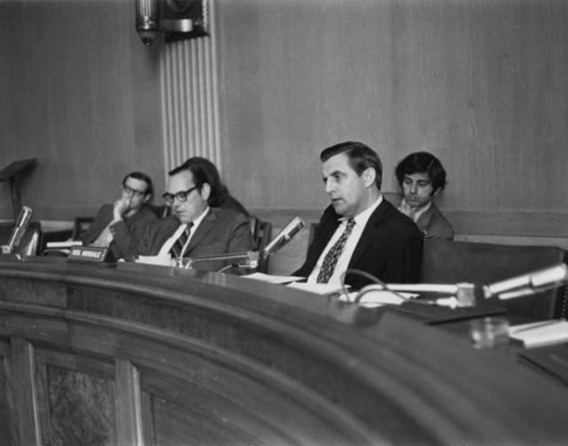
"What will be the ultimate cost to the individual and to the society of the unrealized potential of millions of undereducated children and adults; of years of inequality of education, social, and economic opportunity; of neglected dropouts; of poorly prepared teachers; of alienated youth?
Quality education is truly an investment and not an expense."
U.S. Congress. Senate. Committee on Appropriations. Departments of Labor and Health, Education, and Welfare Appropriations for Fiscal Year 1970: Hearings Before the Subcommittee of the Committee on Appropriations. 91st Cong., 1st sess., December 1, 2 and 3, 1969 at 123.
Excerpt 3

"We have an obligation to human beings, and particularly children, who are powerless to fight for themselves. It seems that we tend to forget that as we rush headlong into nonhuman spending on a massive scale for bombs, weaponry, highways, and the like. We must have as a real priority our children, including the children of the poor and disadvantaged." 91st Cong., 2nd sess., Congressional Record 116 (November 20, 1970) at 38319.
Excerpt 4
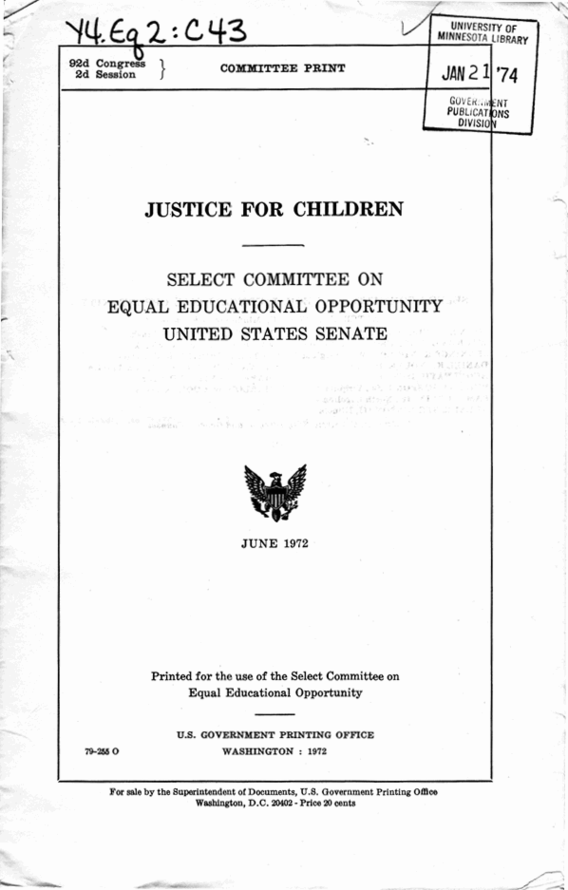
"Over the past nearly 6 years, I have probably served on as many human-problem committees and subcommittees as any of my colleagues. I have been all over this country—its ghettos, its Indian reservations, migrant labor camps, among the Eskimos and the Athabascans, and in the pockets of white poverty—and I am unable to express the profound frustration that I feel at knowing that we are such a powerful and wealthy society and at the same time seem to so tragically fail thousands and millions of our children. It is not only immoral. It is not only unnecessary. I think this failure tampers with the very existence and future of a vital democratic society."
U.S. Congress. Senate. Committee Print. Justice for Children: Select Committee on Equal Educational Opportunity. June 1972 at 31.
Excerpt 5
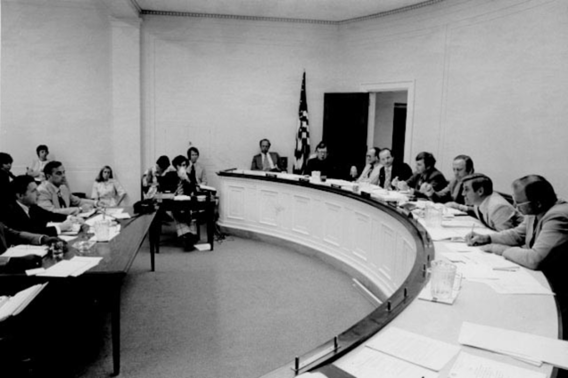
"It is time to reexamine our past efforts to prevent, identify and treat child abuse. It is time to figure out where we have gone wrong for once and for all to put an end to the tragic accounts that temporarily jolt us from our newspaper or television sets, before we file them away somewhere in the corner of our minds so we don't have to think about them."
U.S. Congress. Senate. Committee on Labor and Public Welfare. Child Abuse Prevention Act, 1973: Hearing Before the Subcommittee on Children and Youth: To Establish a National Center on Child Abuse and Neglect. 93rd Cong., 1st sess., March 26, 27, 31 and April 24, 1973 at 1.
Excerpt 6
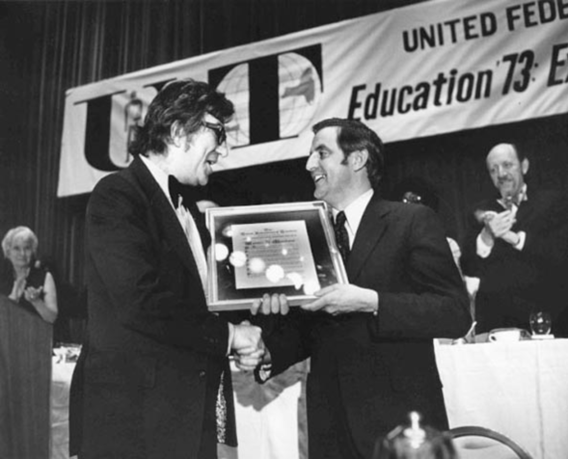
"I think that this country must do a far better job than it's done, and spend more than it has and spend it more wisely and with more spirit and compassion, and with a fuller commitment than we ever have had, to give every child a chance, and I think that's so central that I am sickened by some who would abandon that effort."
Interview with Elizabeth Drew in "A Reporter at Large: Conversation with a Senator," The New Yorker, May 1973 at 125.
Excerpt 7
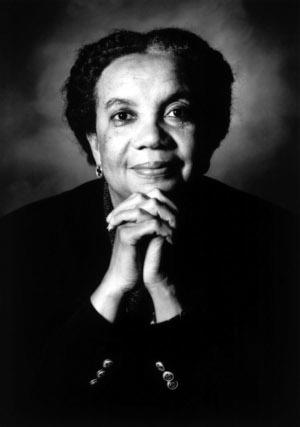
"I do not know why it is that with all the competing demands for Federal money, we seem to assume education should be the lowest rated priority. Because if there is any hope for the delivery of equal opportunity in education, which ought to be at the heart of the basic American commitment, it seems to me, among other things, it demands higher priorities for education.
This is giving the children the best chance to achieve their own potential—to become good parents, to become good citizens, to pay their taxes, to stay off welfare, to avoid committing crimes; and then to produce their own families which, in the next generation, will do the same....
I do not know of a cheaper way of educating children. All our efforts to do it in a cheaper way have failed, and will fail. Education is expensive. If we want good teachers, we must pay them. If we want decent facilities, we must pay for them. When we deal with some children, whom I call children of a cheated background, who come to school with tremendous handicaps that they have accumulated through no fault of their own, it is frightfully expensive to give them a chance. Yet it is still the best investment we can make." 93rd Cong., 2nd sess., Congressional Record 120 (May 20, 1974) at 15325.
Excerpt 8
"I cannot think of anything that is more disgraceful than living in this land of agricultural abundance, great wealth, and great power, and trying to save a few pennies on the school lunch program that is needed to provide nutritious meals for the schoolchildren of this country when we know beyond any doubt, based upon the Senate Select Committee on Nutrition, of which I am privileged to be a member, and based on the hearings held by the Senate Committee on Agriculture and Forestry, that millions of needy American children are being denied the nutritious lunch they need for their health and in terms of their ability to learn in school....
I cannot think of any area in which those savings are more reprehensible and less justifiable than in the area of attempting to save money at the expense of a child's health or to save money at the expense of a child's capacity to learn." 92nd Cong., 1st sess., Congressional Record 117 (October 1, 1971) at 34471.
Excerpt 9
"During my decade in the Senate, I have served on as many or more of what might be called human problem committees as any one of my colleagues.... For much of this time we have been dealing with problems that have often been directly related to pressures on families: housing problems, welfare problems, nutritional problems, the health problems, and all the rest.
The more I have focused on these problems, the more I am convinced of the absolute centrality and fundamental importance of healthy families in American life as the key, best, and superior way of raising children. There is really no substitute for a healthy family in developing a secure, physically sound, motivated child who has a sense of worth. And that is the base for a good citizen—a person who can be a participating and contributing member of society." 94th Cong., 1st sess., Congressional Record 121 (July 31, 1975) at 26549.
Excerpt 10
"You never know what a young person is going to do or what their potential is. You will never know if you don't give them a chance. This goal should be at the top of our list."
Interview with Peter Kizilos in "Citizen Mondale," Minnesota, March-April 1990 at 12.